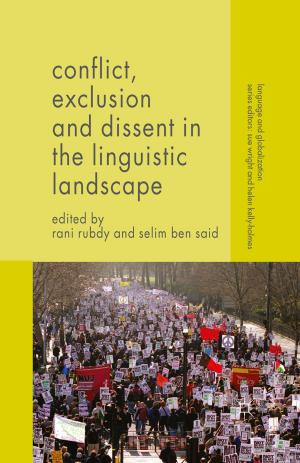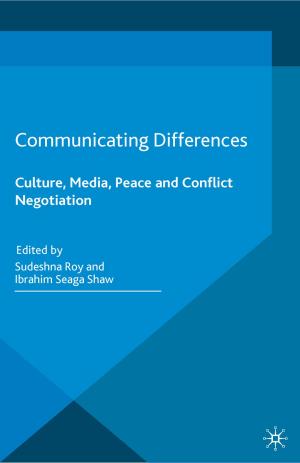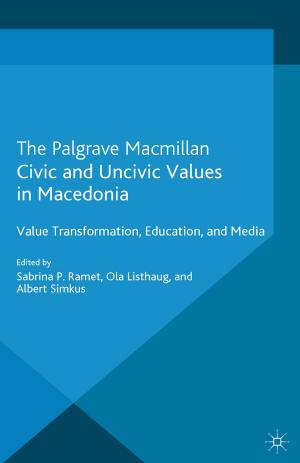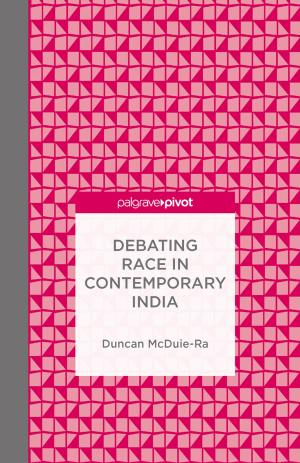Youth and Sport for Development
The Seduction of Football in Liberia
Nonfiction, Sports, Reference, Social & Cultural Studies, Political Science, International, Social Science| Author: | Holly Collison | ISBN: | 9781137524706 |
| Publisher: | Palgrave Macmillan UK | Publication: | June 29, 2016 |
| Imprint: | Palgrave Macmillan | Language: | English |
| Author: | Holly Collison |
| ISBN: | 9781137524706 |
| Publisher: | Palgrave Macmillan UK |
| Publication: | June 29, 2016 |
| Imprint: | Palgrave Macmillan |
| Language: | English |
Processes of development concerning reconciliation, rehabilitation and peace-building have become a central theme for global organizations tasked with intervening in broken and divided societies after violent conflicts. What can reunite populations divided by war and violence whilst attempting to build a peaceful civil society? This book considers the impact and value of sport, notably football, towards achieving this goal.
Using extensive fieldwork from Liberia, Collison highlights the multiple and diverse stakeholders and actors aligning themselves with ‘Sport for Development and Peace’ interventions. By unpacking and conceptualising the ambiguous terminology, complex social effects and the lived experience of SDP, this book draw upon participant voices and the author’s own lived experience within SDP to gain symbolic understandings of culture, identity and the formal and informal social structures in which participants and interventions operate.
Collison identifies that SDP has become fashionable within development agendas but it remains an aspirational image, a notion of seduction, rather than a tested method of reintegration and youth development in post-conflict environments. Youth and Sport for Development questions the assumptions of SDP rhetoric and programs, and traces the effects of football - the favoured vehicle of SDP- on youth in post-conflict Liberia. Examining three core themes: post-conflict development, youth and community, this book centralises the narratives of young football players in Liberia and will appeal to scholars across Anthropology, Sociology, Sports Studies, Politics and Development.
Processes of development concerning reconciliation, rehabilitation and peace-building have become a central theme for global organizations tasked with intervening in broken and divided societies after violent conflicts. What can reunite populations divided by war and violence whilst attempting to build a peaceful civil society? This book considers the impact and value of sport, notably football, towards achieving this goal.
Using extensive fieldwork from Liberia, Collison highlights the multiple and diverse stakeholders and actors aligning themselves with ‘Sport for Development and Peace’ interventions. By unpacking and conceptualising the ambiguous terminology, complex social effects and the lived experience of SDP, this book draw upon participant voices and the author’s own lived experience within SDP to gain symbolic understandings of culture, identity and the formal and informal social structures in which participants and interventions operate.
Collison identifies that SDP has become fashionable within development agendas but it remains an aspirational image, a notion of seduction, rather than a tested method of reintegration and youth development in post-conflict environments. Youth and Sport for Development questions the assumptions of SDP rhetoric and programs, and traces the effects of football - the favoured vehicle of SDP- on youth in post-conflict Liberia. Examining three core themes: post-conflict development, youth and community, this book centralises the narratives of young football players in Liberia and will appeal to scholars across Anthropology, Sociology, Sports Studies, Politics and Development.















